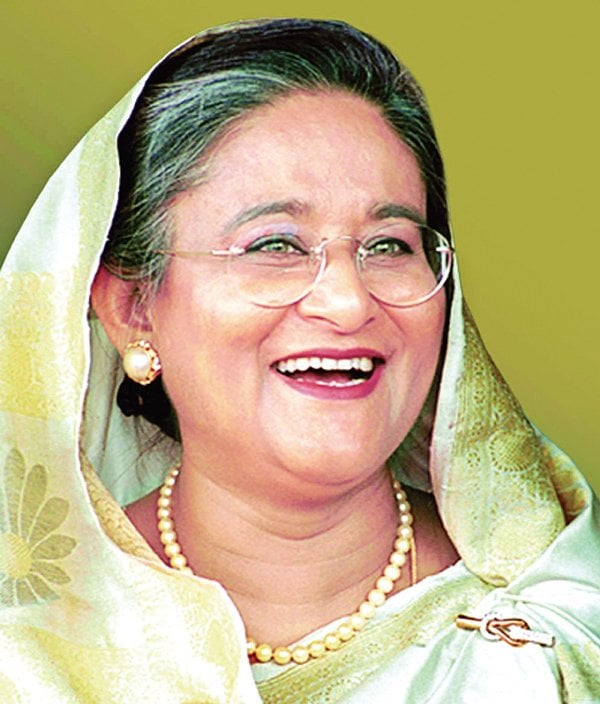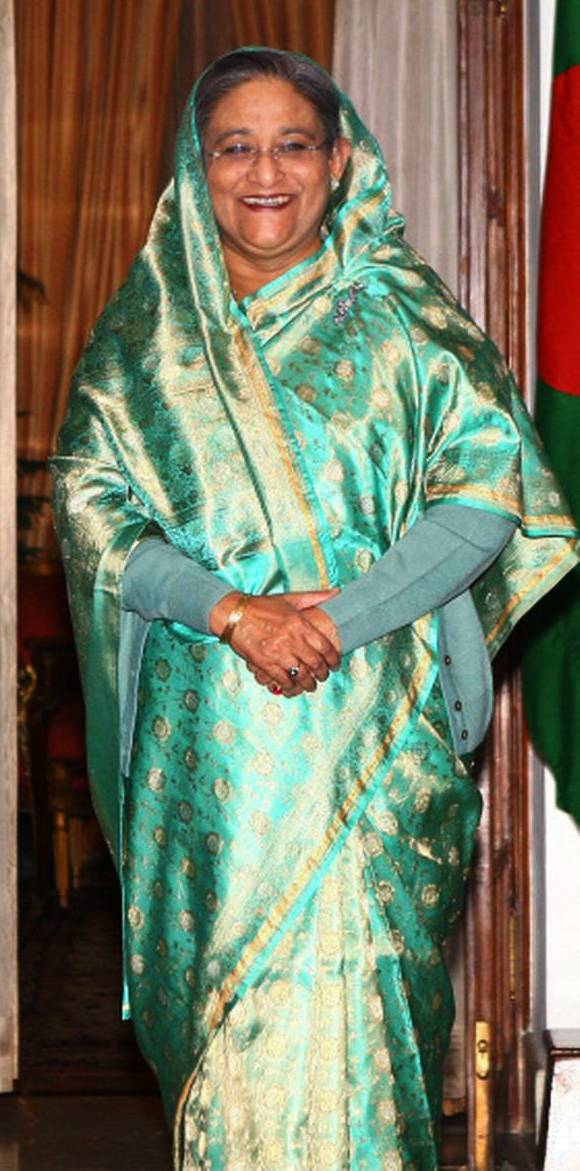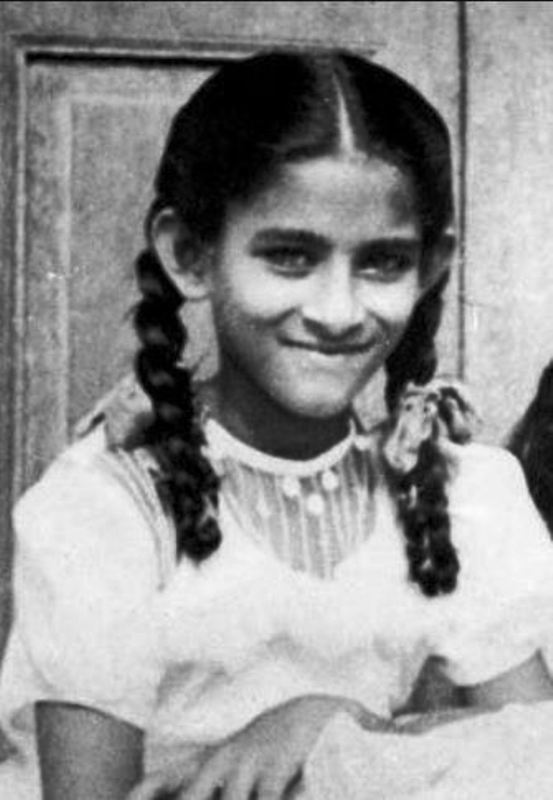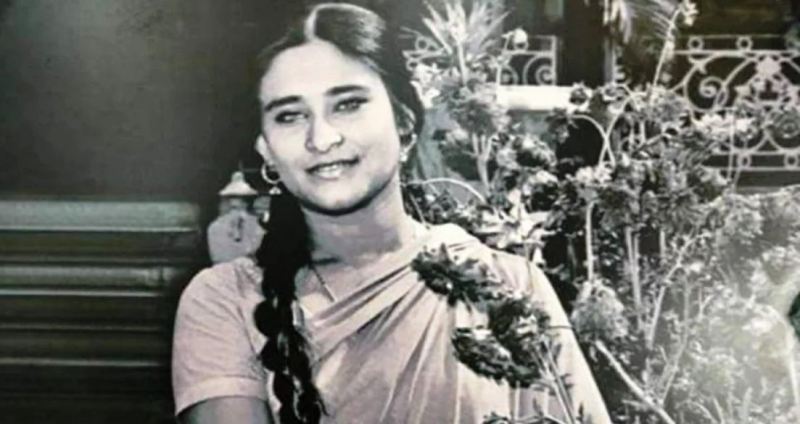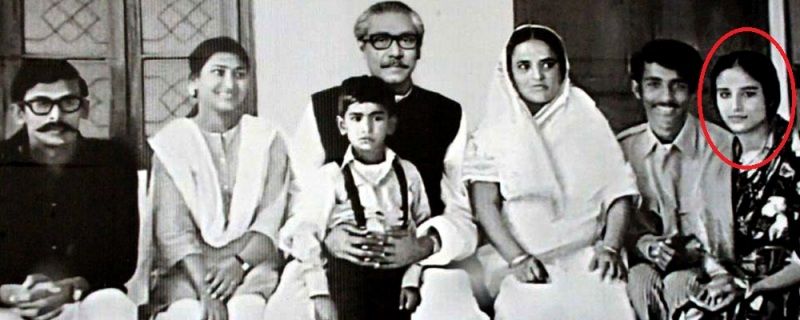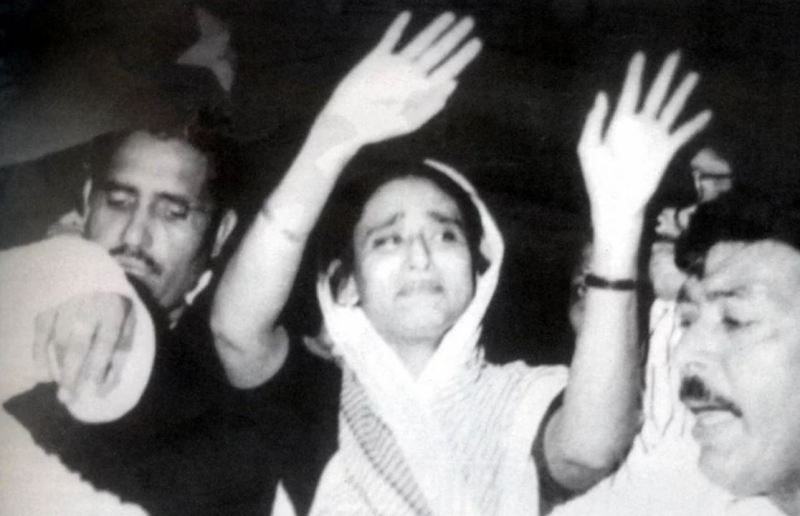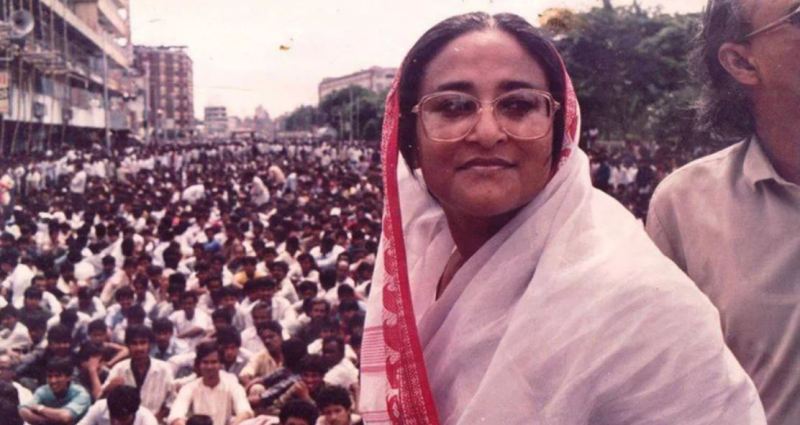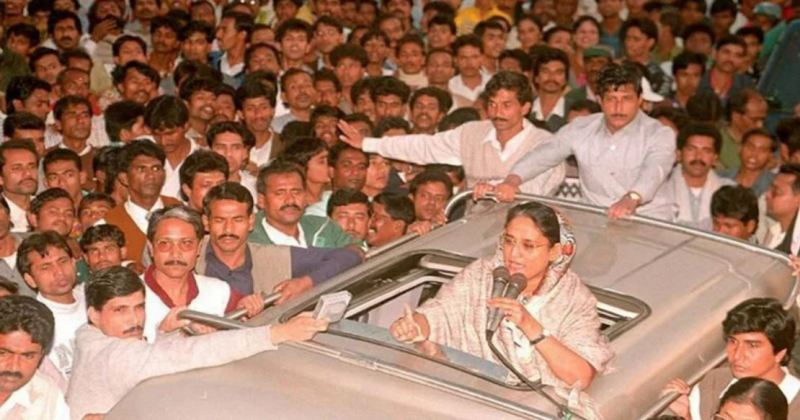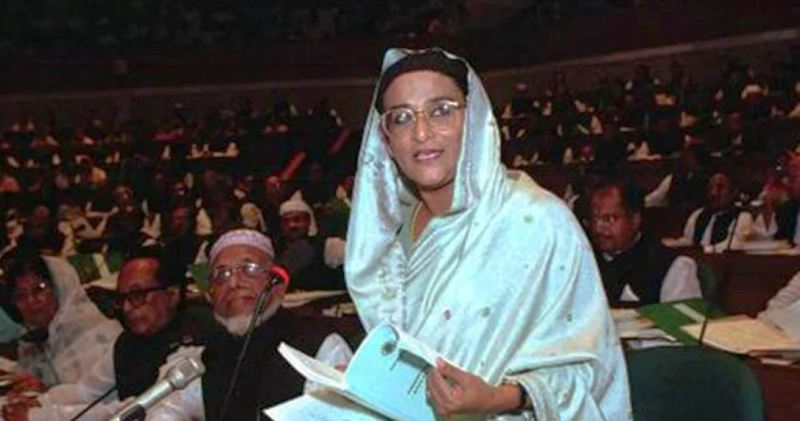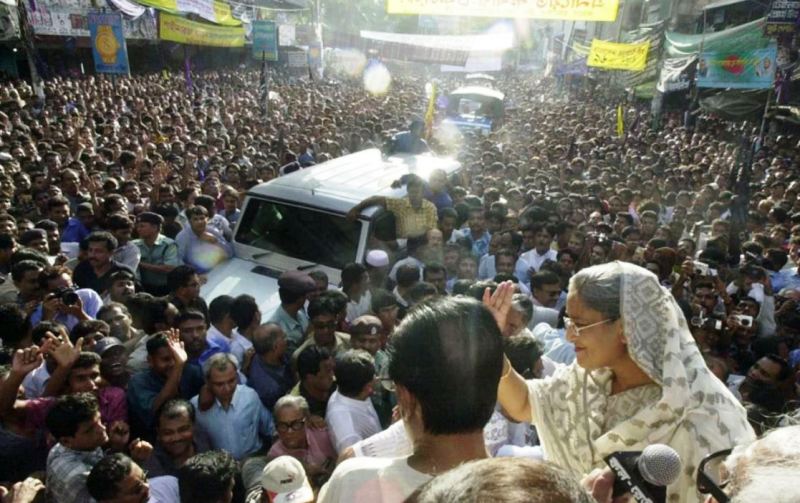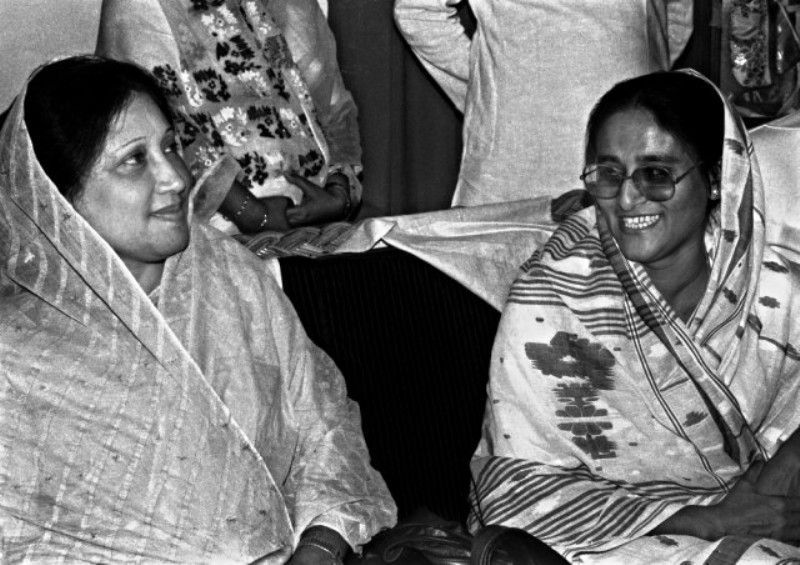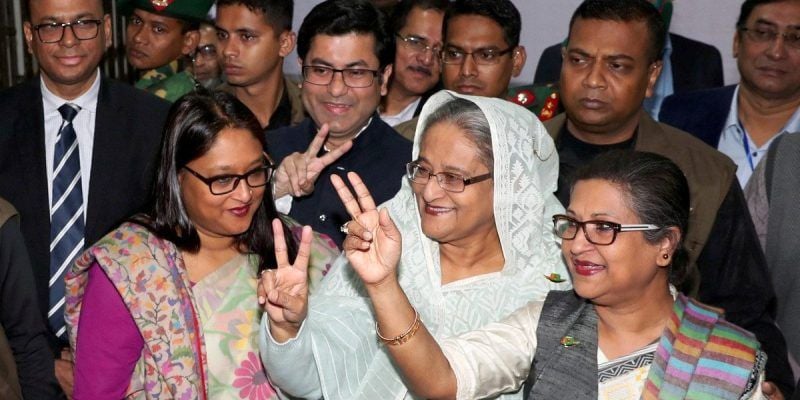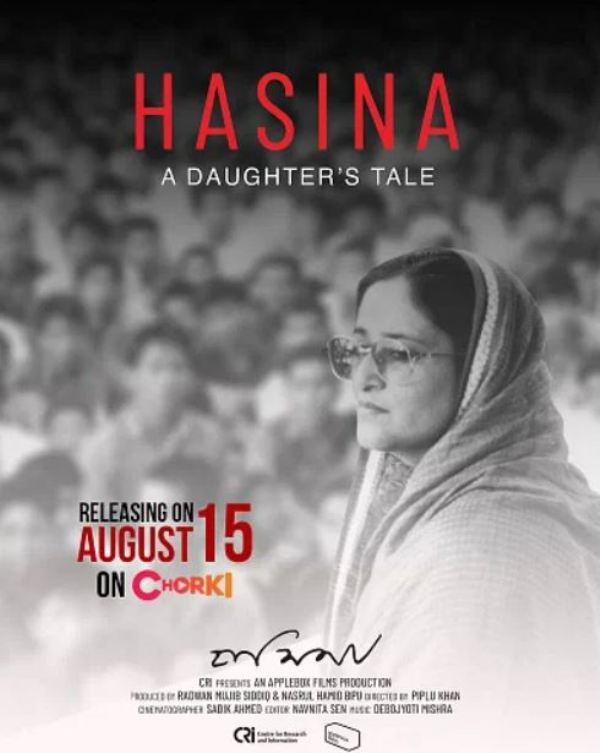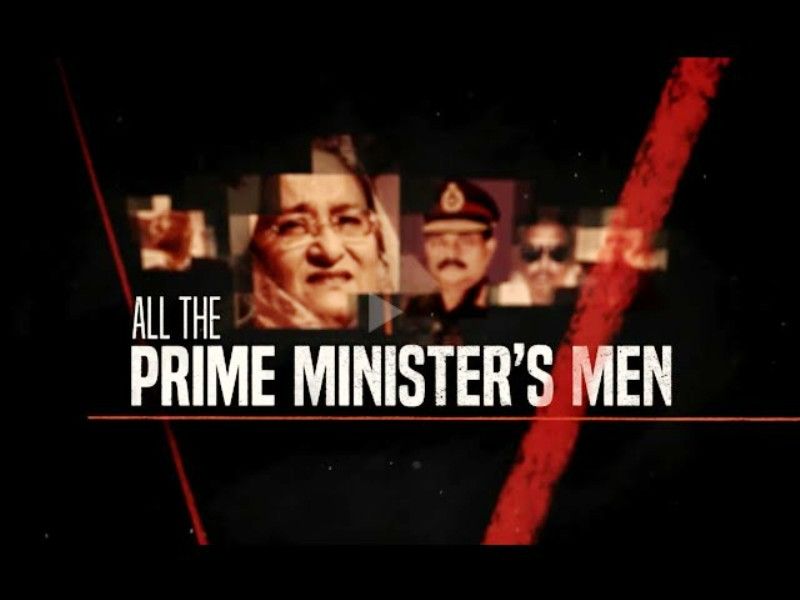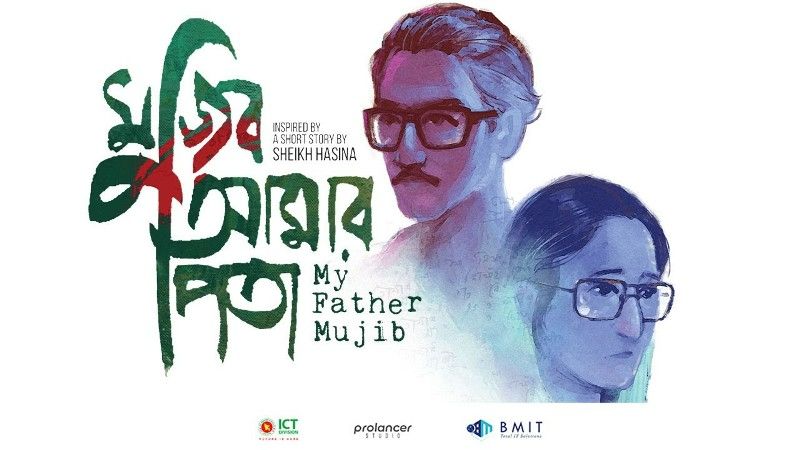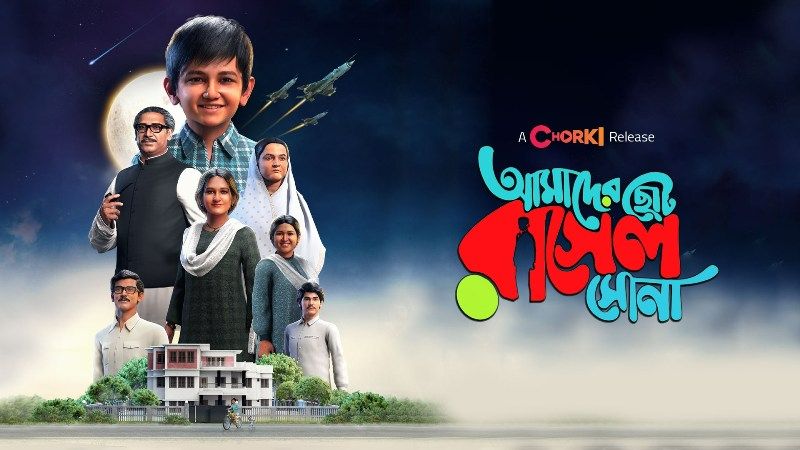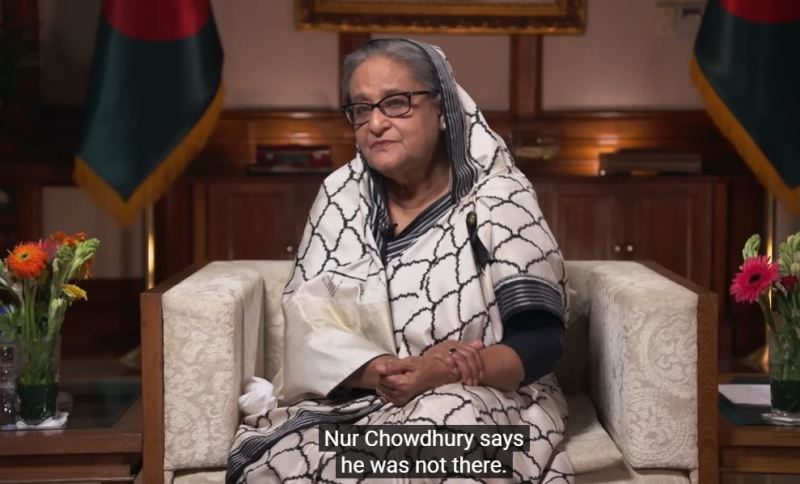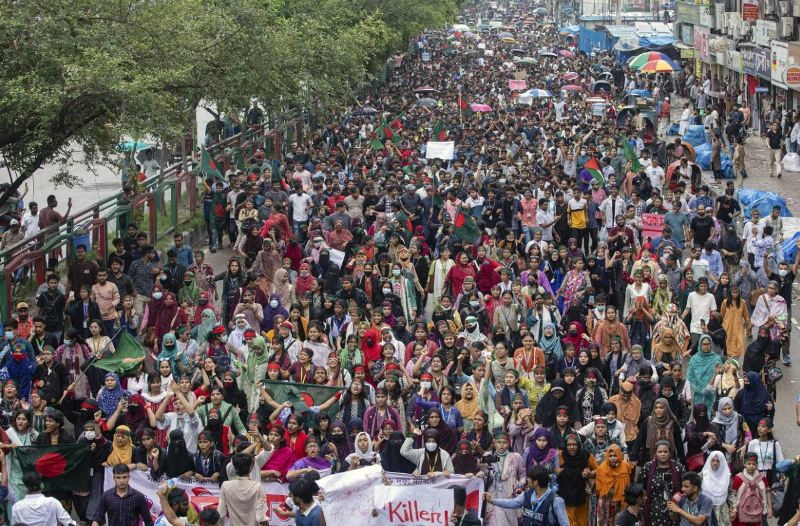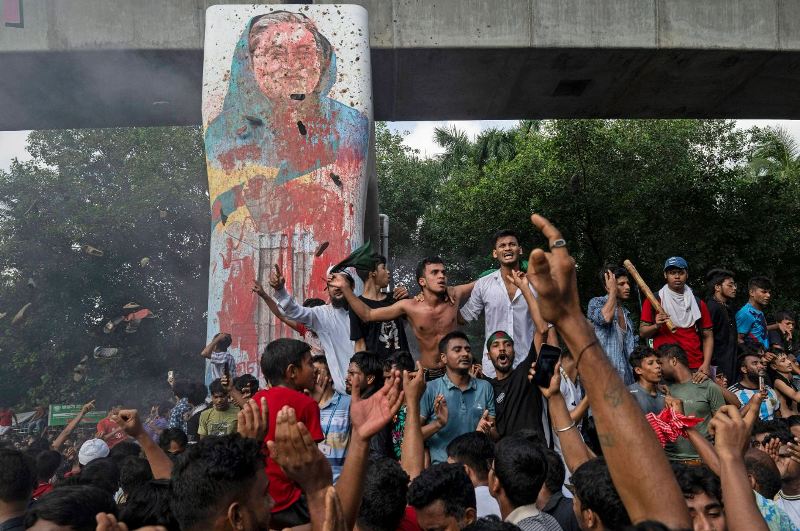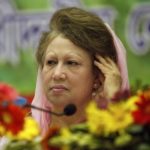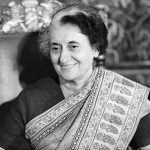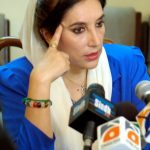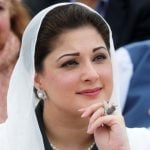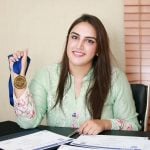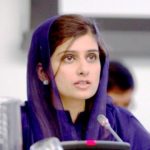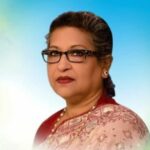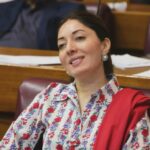Sheikh Hasina Age, Husband, Children, Family, Biography
Quick Info→
Age: 77 Years
Hometown: Tungipara Upazila, Bangladesh
Husband: M. A. Wazed Miah
| Bio/Wiki | |
|---|---|
| Full Name | Sheikh Hasina Wazed |
| Profession | Politician |
| Physical Stats | |
| Height (approx.) | 5' 5" (165 cm) |
| Eye Colour | Lavendar Gray |
| Hair Colour | Gray |
| Politics | |
| Political Party | Bangladesh Awami League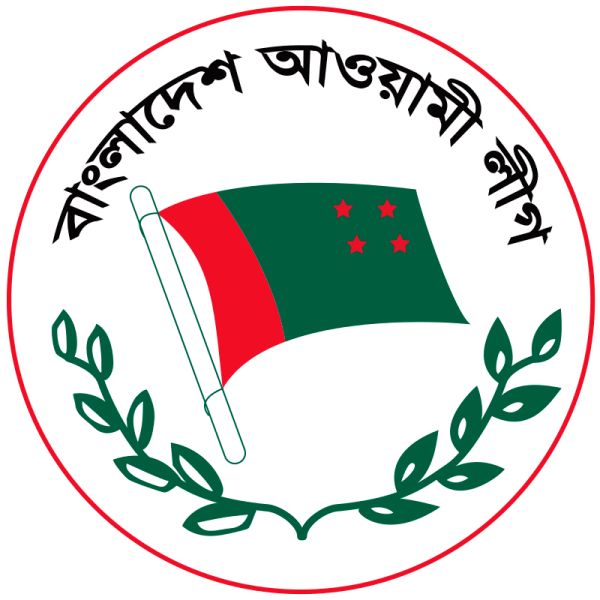 |
| Other Political Affilations | Grand Alliance (2008-Present) |
| Political Journey | • Elected as the 8th President of the Bangladesh Awami League (16 February 1981) • Elected to the 3rd Parliament of Bangladesh from Dhaka-10 (1986) • Served as the Leader of the Opposition (7 May 1986 – 3 March 1988) • Elected to the 5th Parliament of Bangladesh from Gopalganj-3 constituency (1991) • Served as the Leader of the Opposition in the 5th Parliament of Bangladesh (20 March 1991 – 30 March 1996) • Elected and sworn in as the Prime Minister of Bangladesh (1996) • Contested the Bangladeshi general election from 5 constituencies and won except from one, Rangpur-6 (2001) • Contested and won the Bangladeshi general election from 3 constituencies, Bagerhat-1, Gopalganj-3, and Rangpur-06 (2008) • Elected as the Prime Minister of Bangladesh - 2nd term (2009) • Elected as the Prime Minister - 3rd term (2014) • Elected as the Prime Minister - 4th term (2018) • Elected as the Prime Minister - 5th term (2024) • Resigned as the Prime Minister of Bangladesh (5 August 2024) |
| Awards, Honours, Achievements | • Medal of Distinction by the Lions Clubs International (1996–1997, 1998-1999) • Head of State Medal by the Lions Clubs International (1996-1997) • Doctor of Law by Boston University (6 February 1997) • Honorary Doctor of Law by Waseda University, Japan (4 July 1997) • Honorary Doctorate of Philosophy in Liberal Arts by the Abertay University, Scotland (25 October 1997) • The Félix Houphouët-Boigny Peace Prize by UNESCO (1998) • Mother Teresa Award by the All India Peace Council (1998) • M.K. Gandhi Award by the Mahatma M K Gandhi Foundation of Oslo, Norway (1998) • Honorary Degree of 'Desikottama' (Doctor of Literature, honoris causa) by Visva-Bharati University, West Bengal (28 January 1999) • The Ceres Medal by the Food and Agriculture Organization (FAO) of the United Nations (1999) • Doctor of Law (honoris causa) by the Australian National University (ANU) (20 October 1999) • Honorary Doctor of Law by the University of Dhaka (18 December 1999) • Honorary Doctor of Humane Letters by the University of Bridgeport (5 September 2000) • Pearl S. Buck Award by Randolph Macon Women's College of USA (now Randolph College) (9 April 2000) • Named Paul Harris Fellow by the Rotary Foundation • Indira Gandhi Prize (2009) • Doctor of Literature (honoris causa) by Tripura University (January 2012) • UNESCO Peace Tree Award for her commitment to women's empowerment and girl's education (2014) • Lifetime Achievement Award at the Champions of the Earth (2015) • Doctor of the University (Honorary) by the Sher-e-Bangla Agricultural University (16 November 2015) • Ranked 59th on Forbes' list of '100 Most Powerful Women in the World' (2015) • Planet 50-50 Champion by UN Women (2016) • Agent of Change Award by Global Partnership Forum (2016) • Ranked 30th on the Forbes' list of World’s 100 Most Powerful Women (2017) • Doctor of Letters (Honorary) by the Kazi Nazrul University, West Bengal (26 May 2018) • Featured in Time 100 list (2018) • Named one of the world's leading global thinkers by Foreign Policy magazine for providing shelter to the Rohingya people fleeing persecution in Myanmar (2019) • 'Mother of Humanity' by Channel 4 (2019) • Ranked 46th on Forbes' World’s 100 Most Powerful Women (2023) |
| Personal Life | |
| Date of Birth | 28 September 1947 (Sunday) |
| Age (as of 2024) | 77 Years |
| Birthplace | Tungipara, East Bengal, Dominion of Pakistan (now in Bangladesh) |
| Zodiac sign | Libra |
| Signature |  |
| Nationality | • Pakistani (1947-1971) • Bangladeshi (1971) |
| Hometown | Tungipara Upazila, Bangladesh |
| School | • Azimpur Government Girls' School and College, Dhaka, Bangladesh (1965) • Begum Badrunnesa Government Girls' College, Dhaka |
| College/University | • Eden Mohila College, Dhaka • Dhaka University (1973) |
| Educational Qualification(s) | • Bachelor of Arts (BA) from Eden Mohila College • A degree in Bengali Literature from Dhaka University |
| Religion | Islam |
| Caste/Sect | Sunni |
| Ethnicity | Iraqi Arab |
| Food Habit | Non-vegetarian |
| Hobbies | Cooking, Reading |
| Controversies | Charges of Extortion: In 2007, Hasina was arrested on charges of extortion. The Anti-Corruption Commission sent notices to both Hasina and politician Khaleda Zia and instructed them to provide details for their assts within one week. 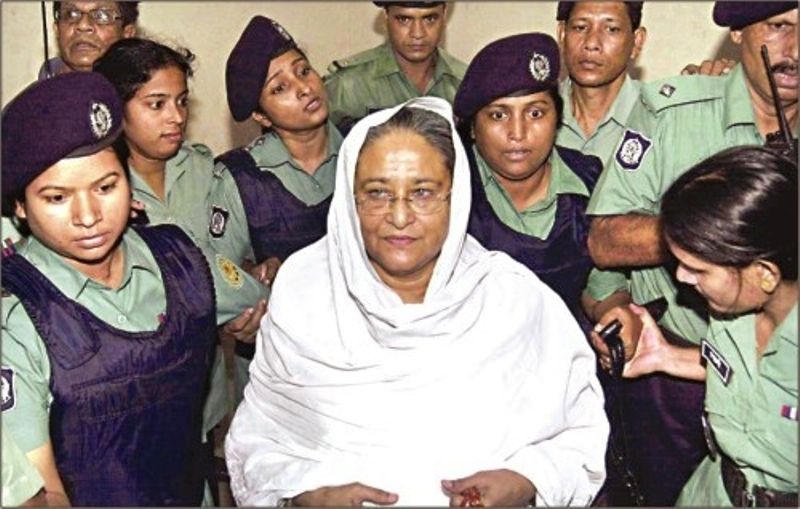 1997 Power Plant Construction: In 2007, the Anti-Corruption Commission filed a case against Hasina regarding a contract for the construction of a power plant in 1997, for which she allegedly took a bribe of 30 million takas. [1]Al Jazeera A Murder Case: On 11 April 2007, the police filed murder charges against Hasina and alleged her to be the mastermind behind the killing of four supporters of a rival political party in October 2006. The four alleged victims were beaten to death during clashes between Awami League and rival party activists. The Padma Bridge Scandal: The 2016 Padma Bridge Scandal, which is one of Bangladesh's largest political scandal, involved Hasina's Awami League government. It was alleged that her Awami League administration accepted a bribe from the Canadian company SNC-Lavalin to secure the contract for building the Padma Bridge. As a result, the World Bank cancelled a $1.2 billion loan for the project due to corruption concerns. However, Hasina later claimed that a US bank official influenced the World Bank's decision. In 2017, an Ontario court dismissed the bribery case due to insufficient evidence. [2]Netra News 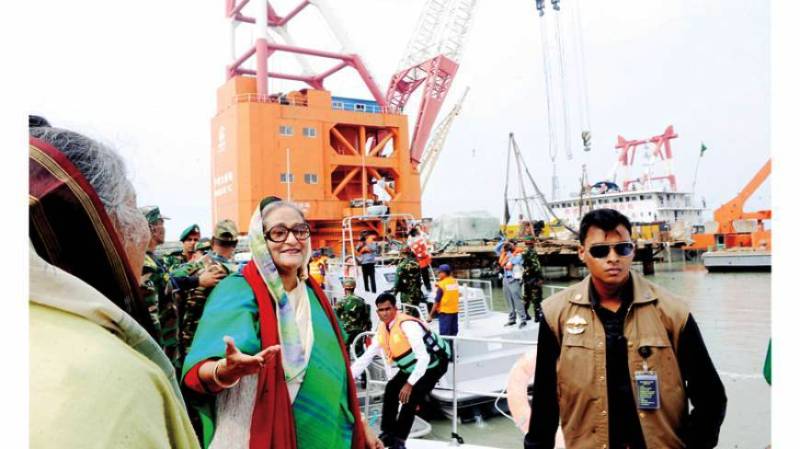 Criticism for Digital Security Act: In 2018, Hasina's government passed the Digital Security Act, which could imprison people for criticising the government online or in the media. The law was widely criticised for restricting free speech and press freedom. Bangladesh-India Rail Corridor: In June 2024, Hasina's visit to New Delhi stirred controversy after Bangladesh and India signed ten agreements, including one permitting India to use a rail corridor through Bangladesh to access its northeastern states. This led to significant criticism in Bangladesh, with allegations that Hasina was compromising country's sovereignty and "selling the country to India." [3]Dhaka Tribune Bangladesh Riots and Charges of Murder In August 2024, a murder case was filed against Hasina and six other government officials for the murder of a grocery store owner named Abu Sayed, killed by Bangladeshi law enforcement agencies on 19 July 2024 amid government crackdown on rioters. The case was filed after Hasina took refuge in India following her resignation. [4]Mint Later, another murder case was filed against her and Bangladeshi cricketer Shakib Al Hasan by a man named Rafiqul Islam, father of Rubel who was killed by security personnel while the latter was participating in a protest march. [5]NDTV In January 2025, the Bangladeshi law enforcement agencies issued second arrest warrant against her following which the government revoked and cancelled her passport on the charges of "forced disappearances." Thereafter, the Indian government extended her Visa. |
| Relationships & More | |
| Marital Status | Widow |
| Marriage Date | 17 November 1967 |
| Family | |
| Husband/Spouse | M. A. Wazed Miah (physicist) (m. 1967; till his death in 2009) |
| Children | Son- Sajeeb Wazed Joy (businessman, politician)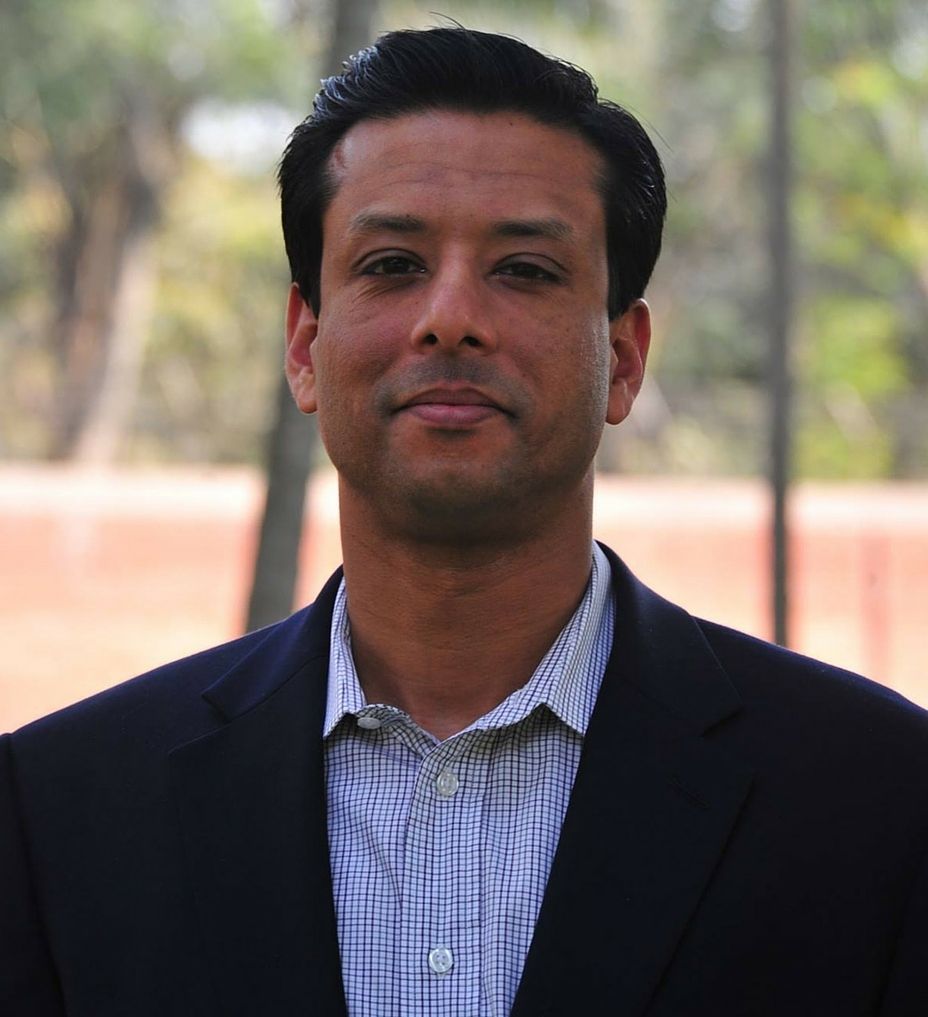 Daughter- Saima Wazed Hossain (educator, public health advocate)  |
| Parents | Father- Sheikh Mujibur Rahman (politician) (deceased) Mother- Sheikh Fazilatunnesa Mujib (homemaker) (deceased) 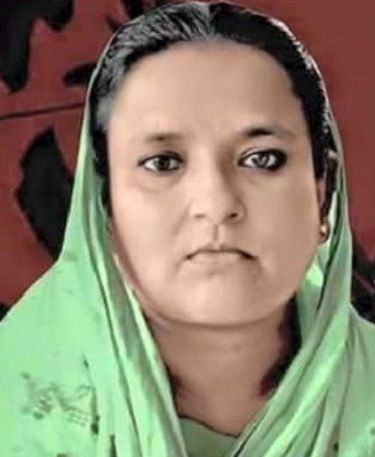 |
| Siblings | Brother(s)- 3 • Sheikh Kamal (younger; Bangladesh Army Personnel) (deceased) • Sheikh Jamal (younger; freedom fighter) (deceased) • Sheikh Russel (youngest) (deceased) 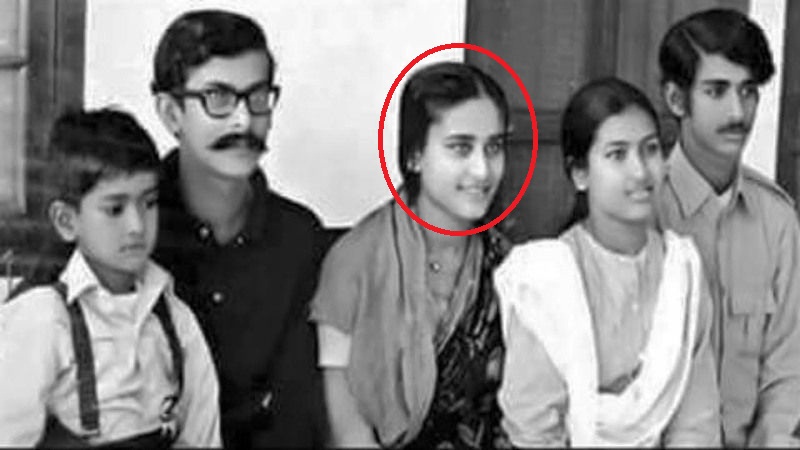 Sister- 1 • Sheikh Rehana (younger) (politician) 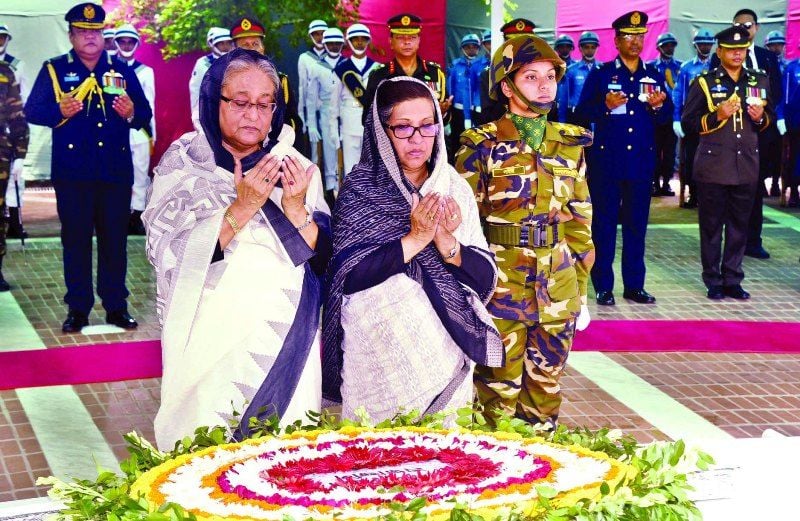 |
| Money Factor | |
| Salary/Income (approx.) | Tk13.90 lakh (Rs. 9.92 lakh) (as of 2024) |
| Net Worth (approx.) | Tk4.36 crore (Rs. 3.14 crore) (as of 2024) |
Some Lesser Known Facts About Sheikh Hasina
- Sheikh Hasina’s heritage links back to Sheikh Abdul Awal Darwish, a Muslim preacher from Baghdad, Iraq, who made Bengal his home during the late Mughal era.
- Her father, Sheikh Mujibur Rahman, served as the first President of Bangladesh from 1971 to 1972. In many interviews, Hasina has mentioned that she grew up fearing for her safety because of her father’s political work.
- During her early childhood, Hasina was raised by her mother and grandmother in Tungipara, Dominion of Pakistan (now in Bangladesh), where she attended a primary school. Her family later moved to Dhaka, where they initially lived in Segunbagicha.
- Hasina inherited politics from her family. During college, she won the vice-presidential elections of Eden Mohila College’s Student Union (1966-1967) by beating Motiya Chowdhury, who later joined her national political party, Awami League.
- While studying at Dhaka University, Hasina lived in Rokeya Hall, the women’s dormitory. She was an active member of the Bangladesh Chhatra League (BCL), the student wing of Awami League. She also served as the general secretary of the women’s unit in Rokeya Hall.
- She had to leave Bangladesh in 1971 for a few years due to the country’s instability following its separation from Pakistan.
- Hasina was not in Bangladesh when her father was assassinated on 15 August 1975 during the military coup. Her mother and three brothers were also killed. At that time, she and her sister were in West Germany, where they stayed with the Bangladeshi ambassador.
- Hasina was later granted political asylum by the Prime Minister of India Indira Gandhi. Her family then spent six years in exile in New Delhi, India. During this time, the military government led by Ziaur Rahman prohibited her from returning to Bangladesh.
- Hasina was elected as the President of the Bangladesh Awami League on 16 February 1981, and she returned to Bangladesh on 17 May 1981.
- During the 1980s under martial law, Hasina faced frequent detentions. She was placed under house arrest in February and again in November 1984. In March 1985, she was detained under house arrest for another three months.
- In 1990, Hasina legally challenged General Hussain Muhammad Ershad, who was in power under martial law. It took a few years of effort, but eventually, he was forced to step down.
- Before Hasina entered politics, elections in Bangladesh were often manipulated, and those who opposed the government faced harsh punishments. Her efforts led to an amendment for fair elections, which made Bangladesh more democratic, less violent, and more respectful of civil rights.
- In 1991, she contested the Bangladeshi general elections from 3 constituencies but won only from her home constituency, Gopalganj-3. The same year, she became Leader of the Opposition in the country’s fifth parliament and played a key role in uniting all political parties to change the government system from Presidential to Parliamentary.
- In 1996, her party won the national election for the first time, and she became the second female Prime Minister of Bangladesh, following Khaleda Zia, who was the first.
- When she first became the Prime Minister of Bangladesh, the country’s first-ever caretaker government was formed after she appointed Justice Shahabuddin Ahmed as the 12th President of Bangladesh.
- In 1996 and 1997, the Hasina government signed the Ganges Water Sharing Treaty with India and the Chittagong Hill Tracts Peace Accord (CHT) with the Parbatya Chattagram Jana Samhati Samiti (PCJSS). These agreements created an environment of peace, harmony, and development in Bangladesh.
- In 1997, Hasina, along with the Queen of Spain and the United States First Lady Hillary Clinton, was proposed to co-chair the ‘Micro-credit Summit,’ which became an essential humanitarian movement.
- During her tenure as the Prime Minister of Bangladesh, the opposition parties demanded early elections after Transparency International declared Bangladesh the most corrupt country in the world.
- She has also significantly improved the position of women in Bangladeshi society. Her efforts have given women a stronger voice in politics.
- While serving as the Prime Minister of Bangladesh, Hasina introduced the National Policy for Women’s Advancement in 1997, which included reserving 3 seats for women in Union Parishad elections, and approved the National Plan of Action for Children in 1999.
- In 2001, she contested the 8th Bangladeshi general elections from 5 constituencies: Rangpur-6, Narail-1, Narail-2, Barguna-3, and Gopalgonj-3. She lost the election from the Rangpur-6 constituency.
- In 2004, during her tenure in the opposition, she was targeted in several fatal attacks, which resulted in the deaths of 21 Awami League members.
- In October 2006, Hasina and the Awami League party initiated the Logi Boitha Movement, where thousands of supporters blocked Dhaka’s streets with boat hooks and oars causing violence, vandalism, and looting. In May 2007, 19 Awami League members were charged with attacking and looting the Islamic Social Welfare Council’s office but were acquitted in June 2011.
- In 2008, she contested and won the 9th Bangladeshi general elections from 3 constituencies: Bagerhat-1 (with 1,42,979 votes), Gopalganj-3 (with 1,58,958), and Rangpur-06 (with 1,70,542 votes).
- She was sworn in as the Prime Minister of Bangladesh for the second time on 6 January 2009.
- Her second term as Prime Minister (2009 to 2014) was overshadowed by several big scandals, including the Padma Bridge Scandal, the Hallmark-Sonali Bank Loan Scam, the Share Market Scandal, and the Rana Plaza collapse.
- In January 2014, Hasina became the Prime Minister for the third time after winning the general election, which was boycotted by the main opposition BNP-led alliance. The elections were widely criticised as “an electoral farce.”
- Sheikh Hasina’s biggest rival is widely considered to be Khaleda Zia. Their conflict is often referred to as the “Battle of the Begums.”
- Hasina is a Patron of the Asian University for Women, which is headed by Chancellor Cherie Blair and includes prominent members like Japan’s First Lady, HE Akie Abe, and UNESCO Director-General Irina Bokova.
- In the 2018 general elections, her party achieved a remarkable victory by winning 96% of the seats. Following this, she became the 10th Prime Minister of Bangladesh.
- In 2018, she appeared in a Bangladeshi docudrama titled ‘Hasina: A Daughter’s Tale,’ which was based on her life.
- Hasina was mentioned in Al Jazeera’s 64-minute investigative documentary on Bangladesh titled ‘All the Prime Minister’s Men,’ which was released on 1 February 2021.
- On 28 September 2021, the animated biopic ‘Khoka Theke Bangabandhu Jatir Pita,’ about her father Sheikh Mujibur Rahman, was released. In the film, Hasina was portrayed as his daughter.
- On 1 October 2021, an animated Bangladeshi film titled ‘Mujib Amar Pita’ was released, which focused on the life of Sheikh Mujibur Rahman. The film depicted Hasina as his daughter and was adapted from her book ‘Sheikh Mujib Amar Pita.’
- In December 2022, Hasina’s government closed about 191 websites for publishing ‘anti-state news’ and shut down Dainik Dinkal, a newspaper owned by Bangladesh Nationalist Party’s Tarique Rahman. The Bangladesh Press Council upheld the closure in February 2022. Critics saw this as an attempt to silence opposition, while the government claimed it was due to publication law violence and the publisher’s criminal record.
- On 26 October 2023, an animated film titled ‘Amader Choto Russel Shona,’ which was based on the life of her youngest brother Sheikh Russel, was released. Hasina wrote the screenplay for the film.
- On 17 November 2023, Hasina was featured in an episode titled ‘The Assassin Next Door’ of CBC Television’s documentary series ‘The Fifth Estate,’ where she discussed the assassination of her father, Sheikh Mujibur Rahman.
- Sheikh contested and won the 2024 Bangladesh general elections from the Gopalganj-3 constituency. She was re-elected as the prime minister for the fifth consecutive term, becoming the longest-serving Prime Minister of Bangladesh.
- On 1 July 2024, students from Dhaka University and other institutions blocked roads and railways while demanding changes to the job quota system they thought was unfair. Despite curfews and military presence, protests continued, which caused damage and casualties.
- On 5 August 2024, Hasina resigned from her position as the Prime Minister of Bangladesh and reportedly sought asylum in India. It was reported that she was unable to control student riots in Bangladesh, which resulted in the deaths of hundreds of students.
- Hasina’s resignation came after the Bangladesh Army reportedly gave her a 45-minute ultimatum to quit her post and leave the office.
References/Sources:

